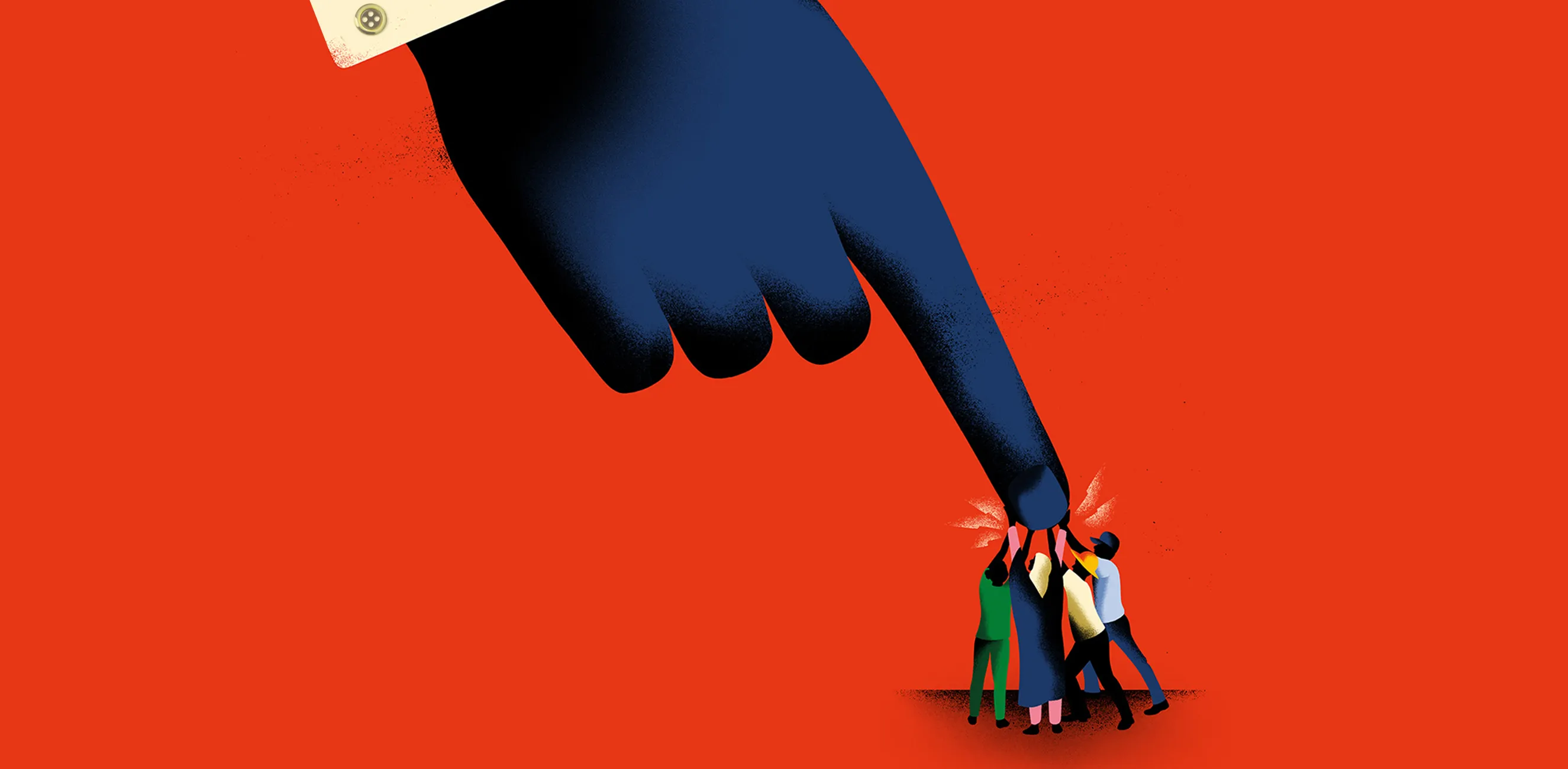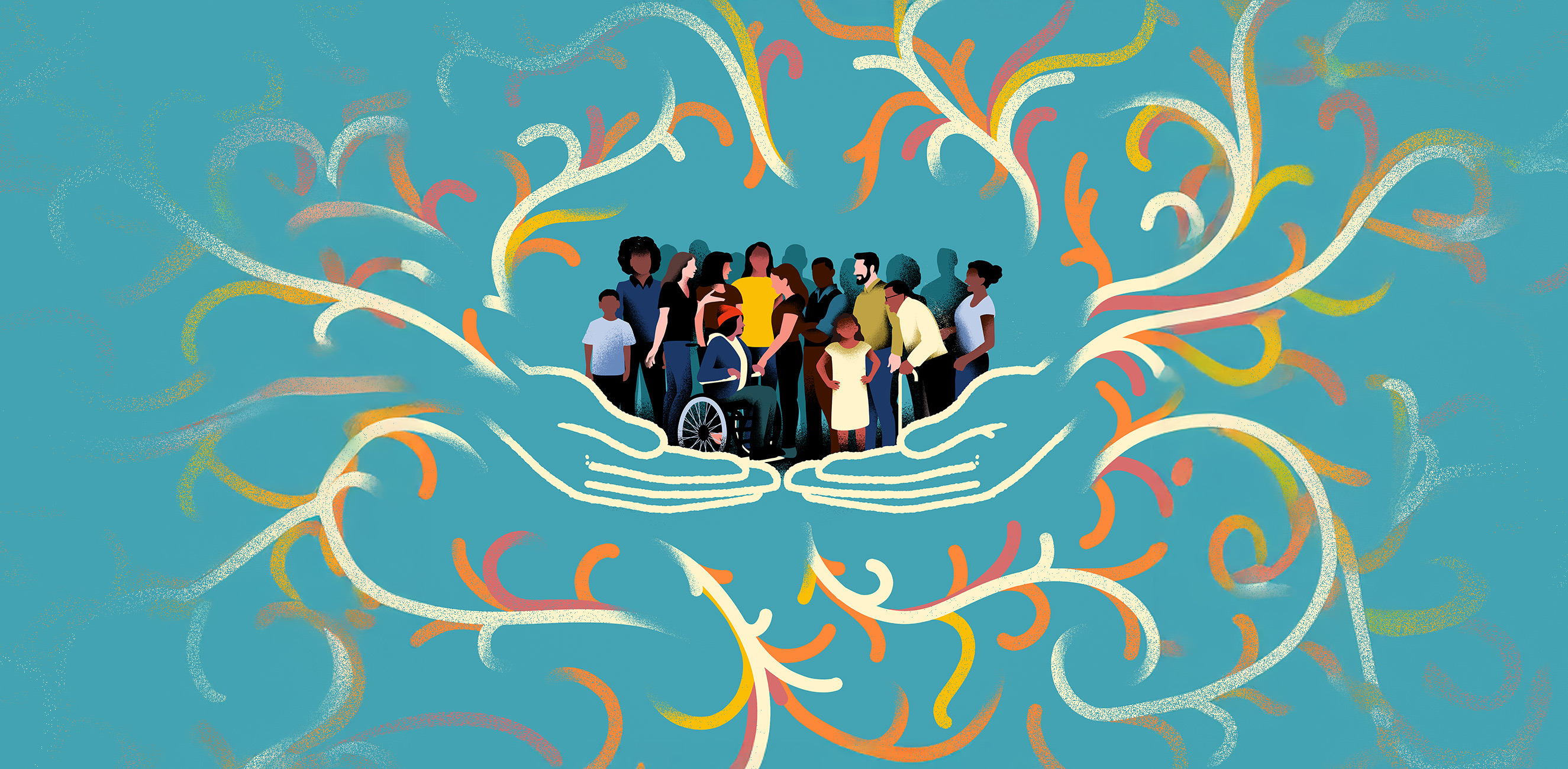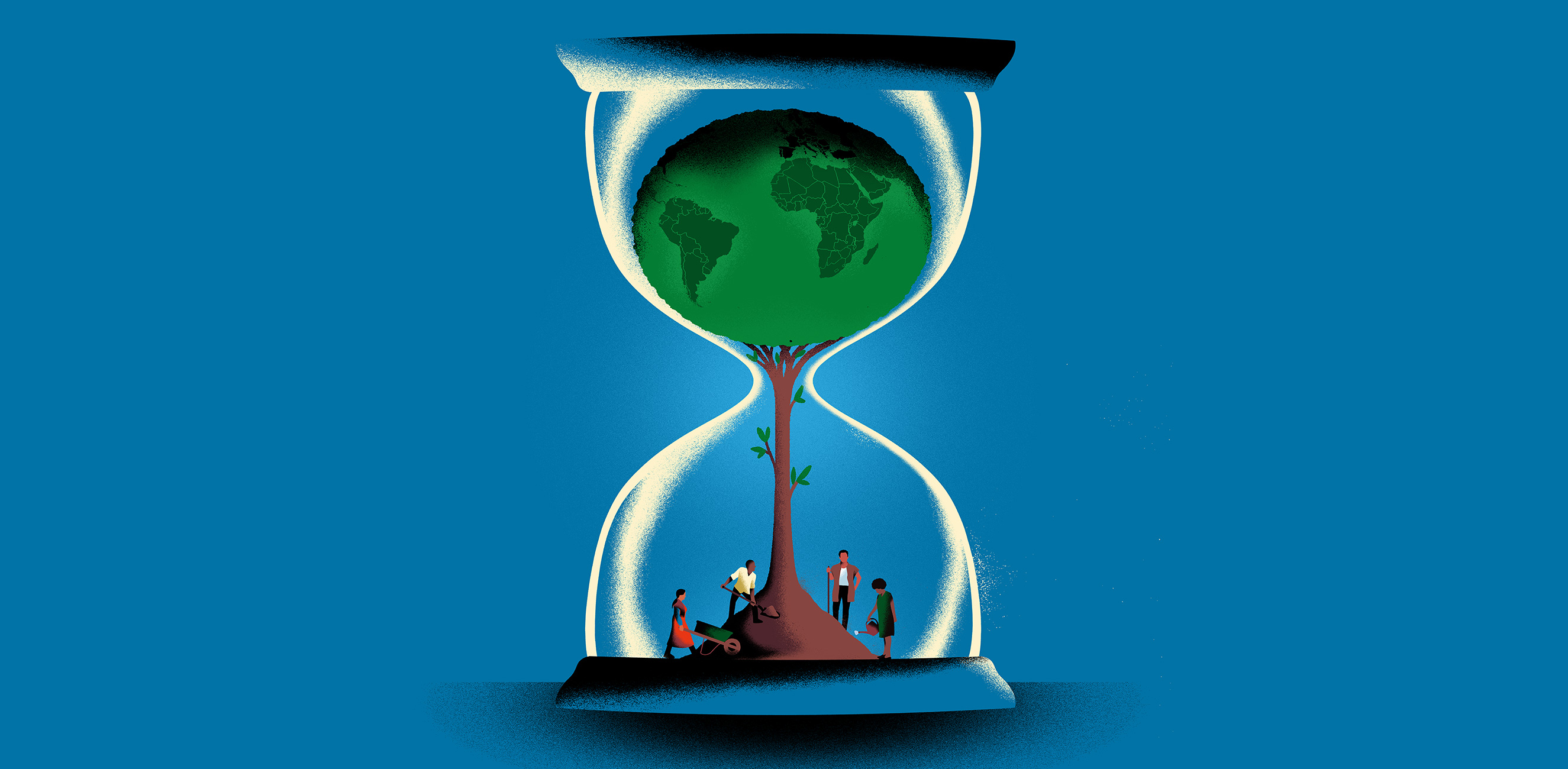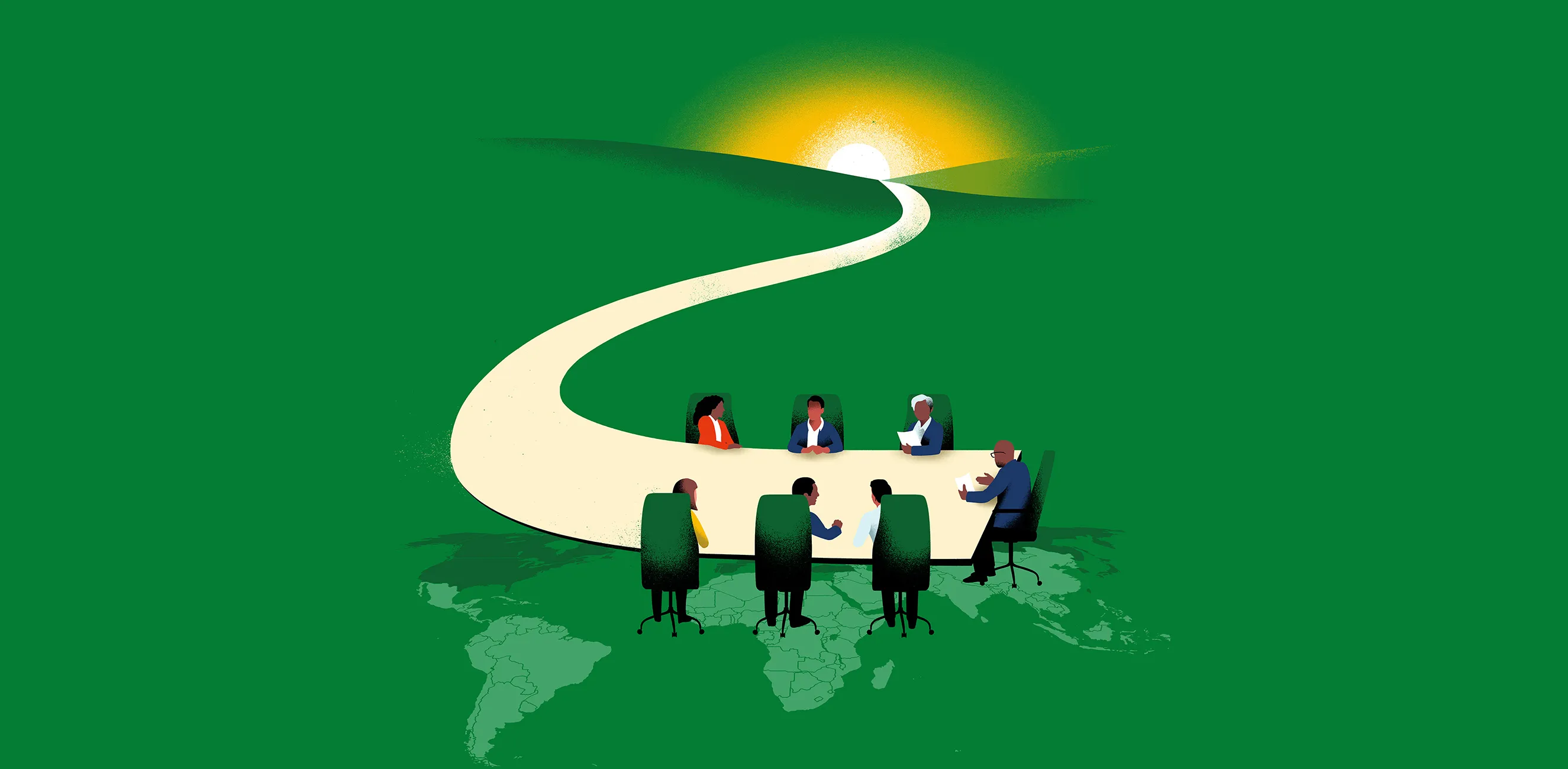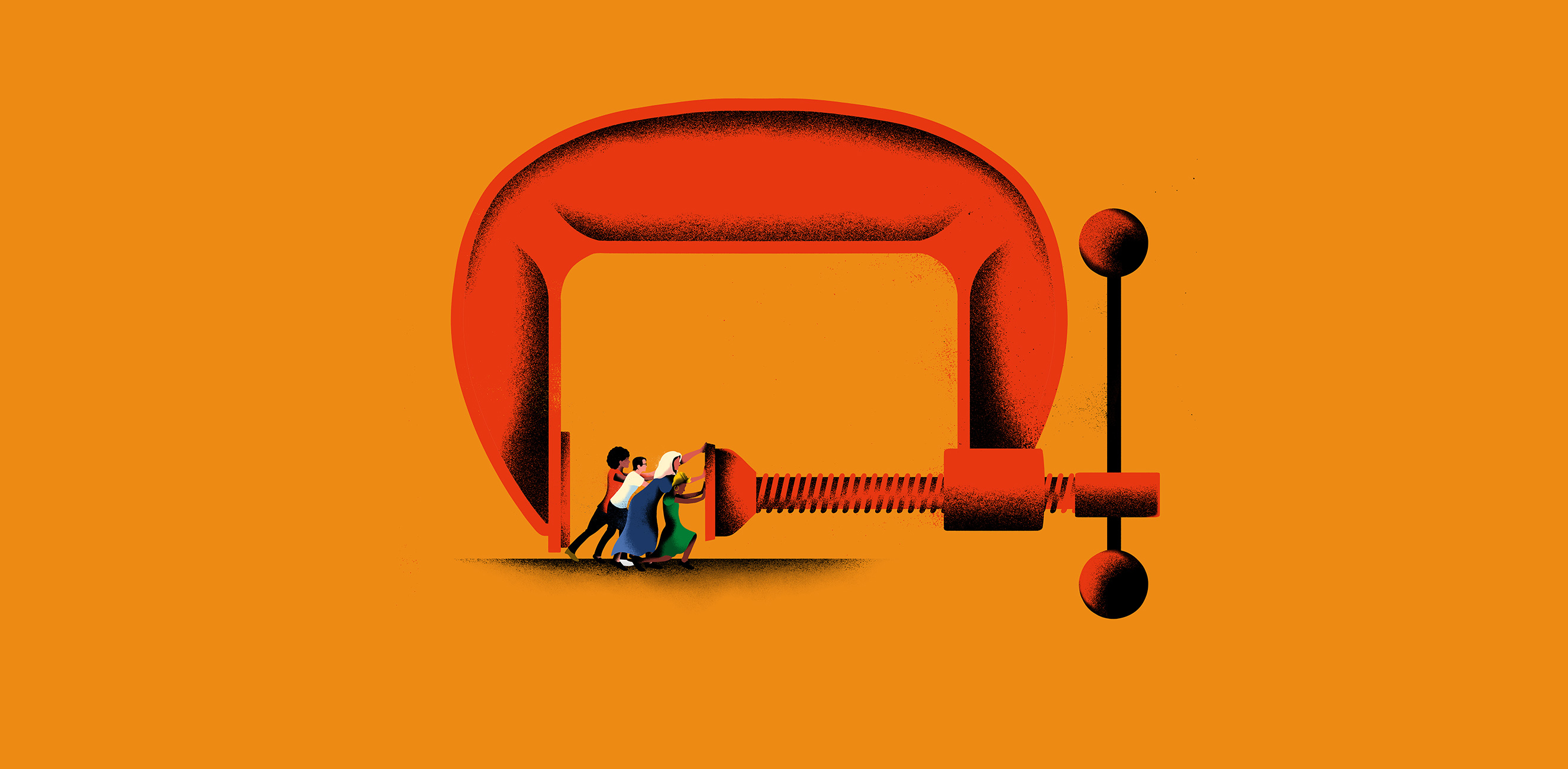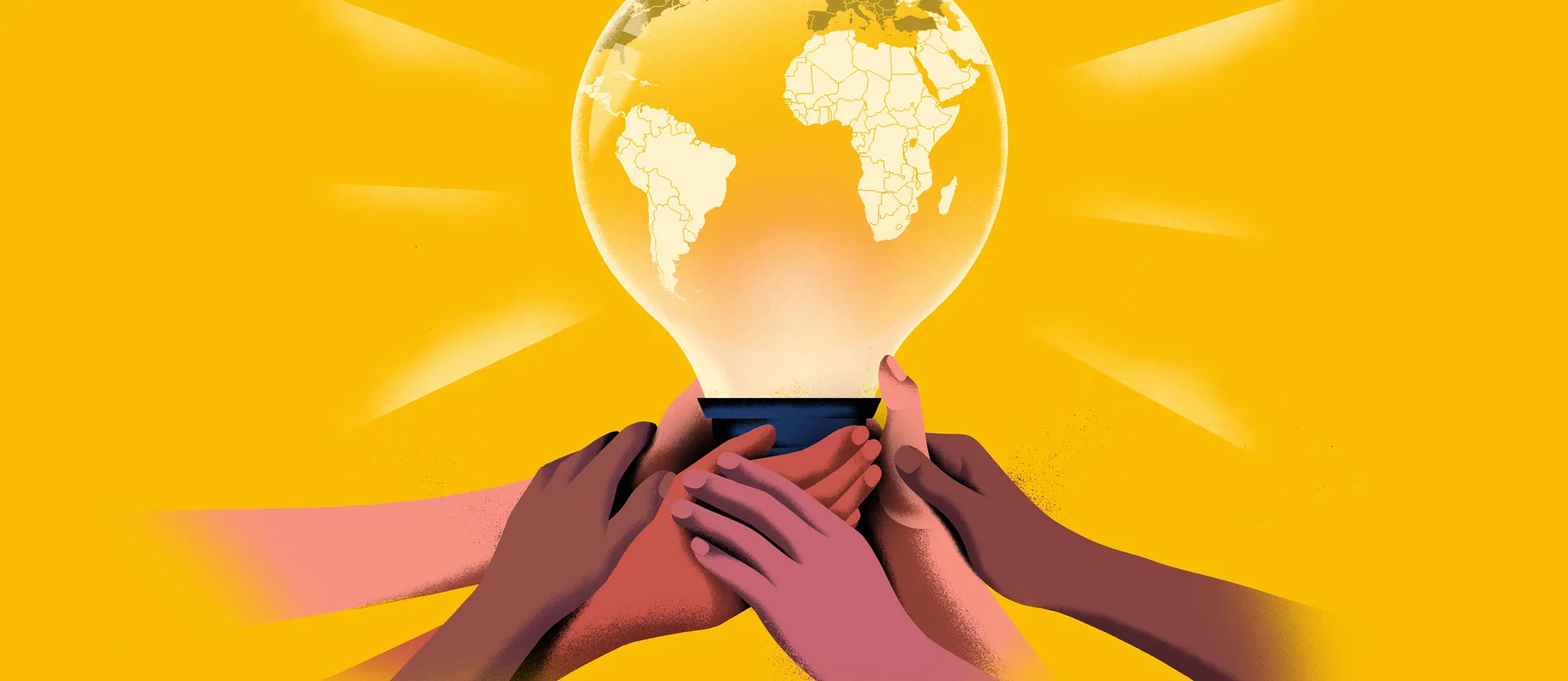
Illustrations by Sebastien Thibault
People-Powered Solutions: Connecting Local Communities and Global Challenges
To build a more just and equitable world, we must build systems from the ground up, powered by voices of those closest to challenges. The traditional top-down approach to solving global challenges has left communities unheard in decision-making processes and vital solutions overlooked.
In a time when trust in global systems is eroding, we must work more rigorously, more empathetically, more nimbly. And above all, we must work together.
Local power matters. Every day, the bold, sustainable solutions we need are being enacted by local groups and organizations worldwide, from the Global South to the Global North. When these ideas take hold, we’ve seen them ripple outward, shaping systems that work to end inequality everywhere. These are leaders with extraordinary vision and tenacity. It’s time to learn from their efforts and others’ and explore how they can be scaled.
Our best path forward requires forging a people-centered global order, powered by insights from local communities to address shared challenges. The Ford Foundation is dedicated to supporting this transformation. We convene diverse coalitions—from government officials and civil society leaders to business innovators and philanthropic partners—because we know that the most impactful solutions emerge when silos are broken and genuine collaboration forms.
Ford’s grantees are the living embodiment of this vision, working tirelessly to build more inclusive international systems and scale their local improvements into global impact. They champion an ecosystem approach that recognizes the interconnected nature of global challenges and the necessity of amplifying the voices with the boldest new ideas. Meet some of the leaders pioneering people-powered solutions now.
Themes
Champions of Fair Labor: Ensuring Worker Rights and Economic Justice
The world of work is changing at unprecedented speed. Globalization, informality, and emerging technologies are creating precarious conditions that impact everyone, and disproportionately those who already experience discrimination, including women, people of color, migrants, and people with disabilities. Traditional employment is giving way to the gig economy and temporary work structures, leaving billions of people and their families disrupted by erratic schedules, income insecurity, and a lack of care support.
In response, worker leaders around the globe are building collaborative systems. They are amplifying voices from the Global South and centering the workers most vulnerable to these shifts. These leaders are forging people-centered coalitions across sectors to advance workplace policies that give workers a voice in how technology is used and impacts their lives at work. They are also securing groundbreaking protections to ensure safety and dignity in the world of work, inspiring similar solutions in other regions.
Guardians of the Public Square: Protecting Civic Engagement
Civic engagement is an essential antidote to inequality—yet around the world, billions of people remain excluded from systems that shape their lives. It is only through safeguarding civic participation that we can protect the right of all communities—especially those often overlooked —to have a voice and help shape the solutions we need.
We need to forge collaborative global frameworks that amplify voices from the Global South and center those closest to today’s most pressing challenges. By building international systems that prioritize people, not profits or institutions, we can protect and expand civic spaces where all people and communities can organize, speak up, and hold their leaders accountable. By elevating these voices in decision-making processes, we create a global order powered by those most knowledgeable of the issues, ensuring meaningful and sustainable systemic change.
Climate Justice Cultivators: Strengthening Community Land and Resource Rights
To plant the seeds for a just and sustainable future, communities most affected by climate change must be at the heart of climate action. However, current decarbonization efforts and extractive practices risk deepening injustices against communities that are putting their lives on the line to protect some of the world’s most important ecosystems. We champion collaborative global systems that are rooted in the voices of Indigenous Peoples, Afro-descendant Peoples, and local communities so their rights are protected and their strategies for forest protection, biodiversity conservation, and sustainable energy transitions are reflected in policies and practices to advance climate justice worldwide.
By building people-centered frameworks that secure land tenure and resource rights, we ensure those most affected by climate injustice lead the transition from exploitative and profit-driven models toward more inclusive and regenerative structures, where communities have agency in caring for natural resources and benefiting from climate solutions.
Global South Architects: Rethinking Sovereign Debt and Global Finance
The current system of global governance is not serving the needs of the Global South. Developing nations are struggling under immense and unfair debt, preventing them from investing in essential services like public health, education, and climate resilience. Simultaneously, foreign aid is flawed and declining, while the global institutions meant to address these issues are both unchecked and increasingly ineffective.
Stemming this tide requires constructing a people-centered global order powered by Global South leadership, where those experiencing the human consequences of sovereign debt and broken aid systems drive solutions. Through democratic governance and inclusive partnership, we can reorganize the global financial architecture to achieve social and economic justice, ensuring international institutions serve humanity’s majority rather than perpetuate inequality.
Public Interest Innovators: Advocating for the Public Good in Global Tech
As technology reshapes global culture, politics, and economics, many communities—especially from the Global South—remain excluded from their development, benefits, and governance, while also being impacted by their harms. An equitable and ethical digital future will only be possible when we expand tech power from a consolidated model to a shared one, foreground the public interest in design and deployment, and center voices who can protect those experiencing persistent discrimination and harassment online.
Around the world, visionary leaders are creating collaborative systems that amplify these voices while challenging harmful surveillance, harassment, and disinformation practices. Emphasizing people-centered frameworks, we must support leaders and civil society organizations that are developing public interest technology and ensuring digital governance advances transparency, privacy, and free expression for all people.
Defenders of Dignity: Building a Safe and Gender Just Future for All
Around the world, violence against women and gender-diverse people is on the rise, limiting the ability of millions to participate in the decisions that shape their lives. But survivors and communities know how to prevent violence. From Mexico to South Africa, they are rising up and developing solutions that ensure women in their communities are safe online, in the workplace, and in their homes. When we center their leadership, we can create transformative, lasting change needed to achieve gender equality. Vibrant, innovative movements rooted in the Global South are reframing narratives and cultivating powerful alliances that challenge patriarchy and systemic oppression, confronting them as a critical barrier to equality.
Through people-centered advocacy, these leaders and organizations are building community safety and prevention programs, furthering accountability through legal standards, and creating new systems of support for survivors. They are advancing comprehensive solutions that protect their communities and reverse systemic power imbalances and harmful cultural norms, while strengthening the rights and influence of those most affected by violence, oppression, and injustice across the globe.
